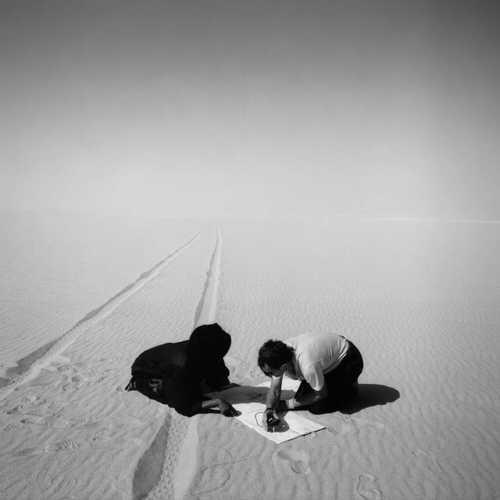How to make a difficult decision | Psyche Guides
Curated from: psyche.co
Ideas, facts & insights covering these topics:
18 ideas
·2.93K reads
42
Explore the World's Best Ideas
Join today and uncover 100+ curated journeys from 50+ topics. Unlock access to our mobile app with extensive features.
The Difficulty In Decision Making
Ultimately, what defines a hard decision isn’t so much the decision itself, but how it is perceived by the decision-maker. You might feel that a decision is hard because:
- the stakes, for you, are particularly high;
- two or more options weigh the same in your mind; or
- this decision brings back unhelpful memories or fears.
Decisions are complex, not necessarily because the choice between two options is complex but also, more importantly, because human beings are complex.
59
385 reads
The Origin
The etymology of the word ‘decision’ provides important insight. It comes from the Latin word caedere meaning ‘to cut off’.
Decisions cut us off from other choices, other opportunities and the possibility of better outcomes. For this reason, the act of deciding can feel like a self-inflicted wound.
57
296 reads
Avoiding A Decision Is A Decision
When faced with a difficult decision, it can be tempting to take the easy road and procrastinate. This attitude illustrates what might be the greatest myth about decision-making: that, faced with two choices, we still have the option to not decide and to do nothing.
In fact, procrastination is not the refusal to decide, or to ‘freeze’ a decision in time, rather it is the active decision to remain undecided. It is only when you realise that procrastination is a decision that you will start finding this option less attractive.
61
216 reads
Short and Long Term Regrets Of Decisions
- In the short term, people experience more regret from ‘errors of commission’ (taking an action that leads to a disappointing outcome).
- In the long term it is actually ‘errors of omission’ that lead to more regret – that is, disappointing outcomes that arise from not taking an action.
59
222 reads
Split
When facing difficult decisions, it is likely that different parts of you might want different things.
When deciding whether to book a pricey holiday, one part of you (prudent) might think that this expense is unreasonable, while another part of you (hedonistic) prefers to make the most of life and go for it, while yet another part of you (serious) will think that work should come first.
Decision-making involves the deliberation between the different parts of yourself. It involves getting them to sit together around an imaginary table to agree on an outcome they can all settle for.
58
251 reads
Birds Eye View
The more you struggle with difficult decisions, the less distance from them you enjoy and the more bogged down you can become.
And yet, psychological distance provides a sense of perspective that is a key component of effective decision-making.
57
238 reads
Creating Psychological Distance
In the 16th century, the Spanish priest and theologian Ignatius of Loyola suggested three ways you can achieve more psychological distance from a difficult decision:
- by letting go of your preferred option momentarily, to consider all options objectively (later in the Guide I show a way to do this);
- by imagining that you are advising a friend making the same decision; and
- last but not least, by imagining reflecting from your deathbed on the same decision, years (hopefully many decades!) later.
65
159 reads
Warren Buffett's 10/10/10 Rule
Even the world’s most famous investor, Warren Buffett, credits some of his best decision-making to a method known as the 10/10/10, meaning: how will I feel about today’s decision in 10 days’ time, vs 10 months, vs 10 years?
Here again, it is about creating more distance between yourself and your decision, to benefit from a greater perspective.
63
181 reads
Thinking Outside The Box
How can you think outside the box and see that other elusive option?
- One way is to adopt a childlike mindset. As children go through school education, grow up and learn to function as productive adults, one thing they tend to lose is their creative confidence, this positive emotion that comes from looking at tasks without preconceived notions of what outcome is expected.
- Another way to think outside the box is to ask friends or contacts who are known for this ability if they can see another option available to you.
56
145 reads
List Out Your Objectives
Objectives are the ultimate goals that a decision aims to achieve.
It is important to list your objectives and cross-check how many of them would be satisfied by each decision. Research has shown that our decisions frequently suffer from having too narrow a range of objectives (perhaps because we are not thinking outside-the-box enough).
58
120 reads
Use a Weighting System to Compare Multiple Options
By methodically assessing your options against a comprehensive set of objectives, it is possible that one option will emerge as the obvious decision to take. In many instances, though, more work will be needed.
One can consider each of your options separately, listing the potential outcomes where you to take that option and making an estimation of the likelihood of each of those outcomes happening. This approach has particular merit if you are finding it hard to distance yourself from a preferred option, or to rid yourself from potentially irrational positive or negative biases.
57
96 reads
Comparing The Options
- First, what are the objectives behind your decision?
- Next, what weight (from 0-100 per cent) would you assign to each objective: ie, how important is this objective to you?
- Now, turning to each option available to you, what mark (between 1 and 10) would you give it to fulfil the various objectives?
- Add up and compare the options. This doesn’t necessarily mean that the option with the highest score is the one they must follow, but the exercise leads people to question what matters most to them.
57
85 reads
Listen to Your Emotions
Any systematic weighting exercise requires you to assign scores and probabilities in a way that isn’t entirely scientific and that relies on an element of ‘gut feeling’.
However, this isn’t a weakness of these approaches, as tapping into the emotional part of your psyche is key to effective decision-making. In some cases, it is the most essential component.
58
90 reads
The Emotion Exercise
A practical approach is to write about each option (half a page each time on a separate sheet), and explore how you feel while writing; also, how you feel about each sheet in front of you. If you throw them into the wastepaper bin one by one until one remains, what are the emotions and feelings prompted when you dispose of them?
Another shortcut into your emotions is to close your eyes when thinking about each option and try to identify the colour that you see (with your eyes still closed) when thinking about one or the other option.
59
100 reads
Use Micro-Decisions to Overcome Inertia
Having selected your best option, you need to act upon it. This is what trips up many people. They find it hard – sometimes even impossible – to get started. One way out of such a dilemma is to break down your big decision into a series of micro-decisions.
This is only the beginning of the process, but getting started with this level of clarity can create a momentum that is more likely to lead to progress.
54
87 reads
The Way Pressure Affects Decision Making
Making decisions under pressure can blur people’s judgment in at least three ways:
- Under stress, we tend to behave as if we are under time pressure even when we’re not. We often have more time than we think.
- Pressure leads people to adopt a narrow vision of the situation at hand. In highly stressful situations, we tend to focus all our attention on the decision and ignore peripheral information, which may be vital. This is known as ‘cognitive tunnelling’.
- Others will suffer from the opposite problem and experience ‘decision inertia’.
58
77 reads
Cohen-Hatton’s Decision-Making Approach
Establish whether your team is working towards the same objectives and ask the following key questions:
- What do you think will happen if you do, or do not, match your competitor’s offer?
- If you did decide to match the other offer, what would be the implications for your company (both financially, and in terms of resource allocation and team management)?
- Do you all agree that matching the rival offer makes sense? Do you agree on your best compensation package?
- Does the decision you are leaning towards jar with your own professional/ethical judgment or are you fully supportive of it?
56
83 reads
The Five Questions Before Deciding Under Pressure
- Why are we taking this decision?
- What do we think will happen if we do?
- Is the benefit of taking this decision proportional to the risk?
- Do we have a common understanding and position on the situation? In the case of a firefighting mission, this would mean ensuring that all the officers agree on their reading of the situation, and on the approach to follow.
- Is the collective decision in line with my professional judgment and experience?
58
102 reads
IDEAS CURATED BY
Makayla D.'s ideas are part of this journey:
Learn more about leadershipandmanagement with this collection
The importance of perseverance
How to embrace failure as a learning opportunity
The power of innovation and creativity
Related collections
Similar ideas
7 ideas
9 ideas
How to Make Difficult Decisions
zapier.com
5 ideas
5 Steps to Good Decision Making
corporatewellnessmagazine.com
Read & Learn
20x Faster
without
deepstash
with
deepstash
with
deepstash
Personalized microlearning
—
100+ Learning Journeys
—
Access to 200,000+ ideas
—
Access to the mobile app
—
Unlimited idea saving
—
—
Unlimited history
—
—
Unlimited listening to ideas
—
—
Downloading & offline access
—
—
Supercharge your mind with one idea per day
Enter your email and spend 1 minute every day to learn something new.
I agree to receive email updates








